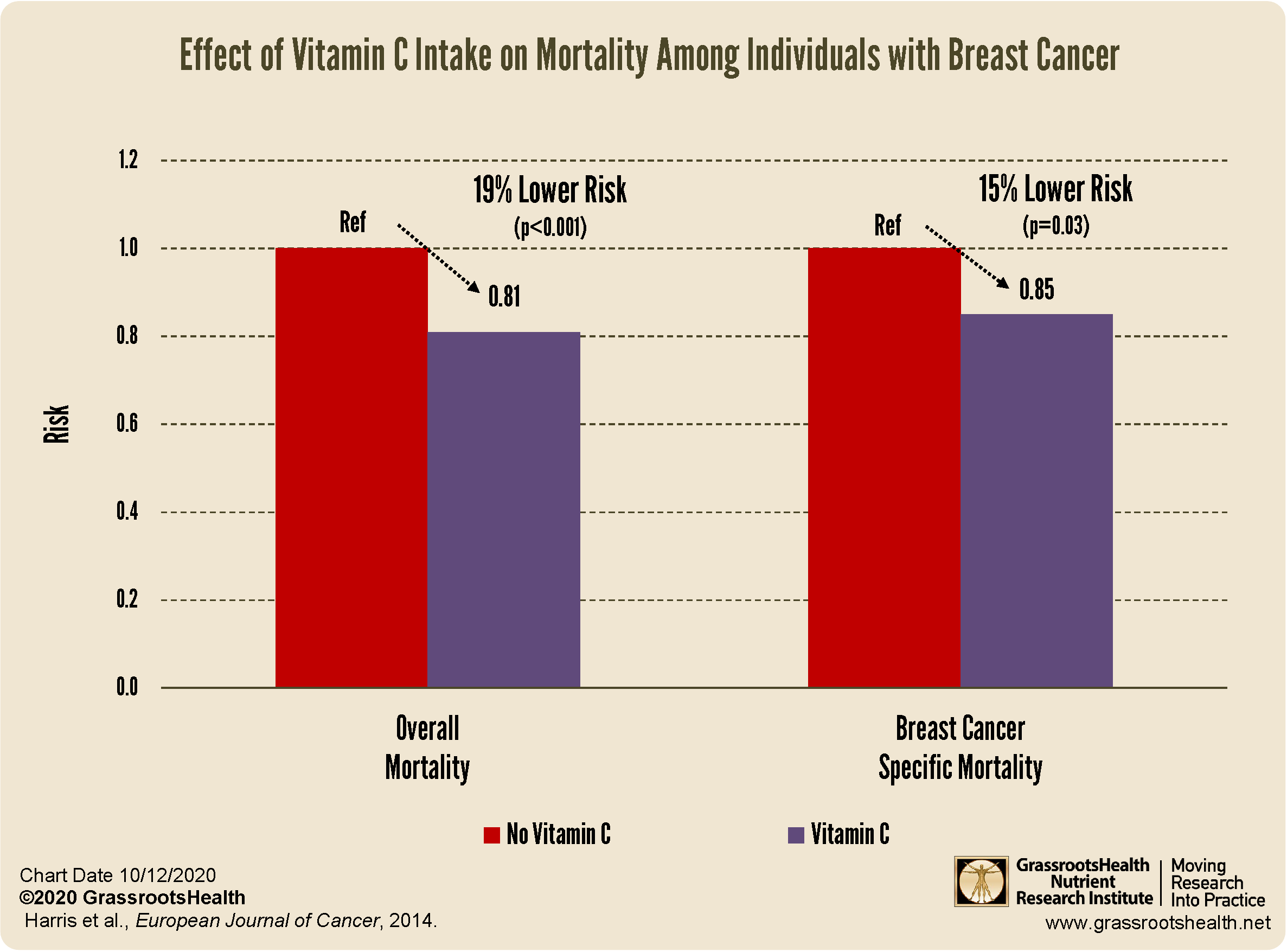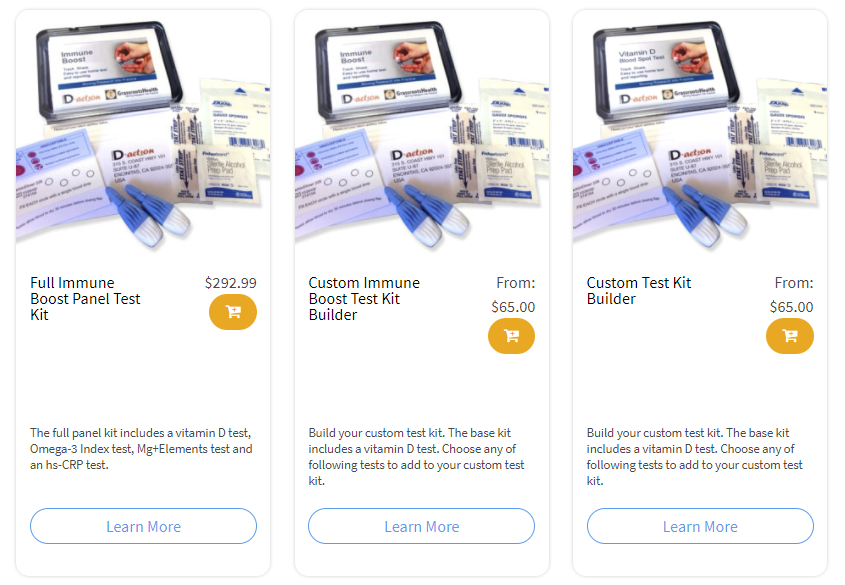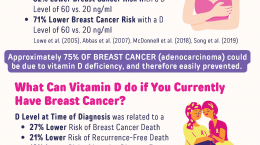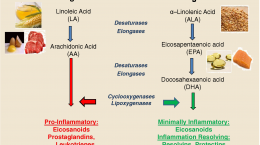Published on October 14, 2020
Meta-analysis shows statistically reduced risk of mortality among breast cancer patients for women with dietary and supplemental vitamin C intake
Vitamin C has many roles within the body that help keep us healthy – it protects cells from oxidative damage that could contribute to cancer progression, and it plays specific roles within the immune system to fight infections and enhance the immune response.
Could Vitamin C Affect Cancer Progression and Survival?
 With breast cancer being the most commonly diagnosed cancer among women, both within the United States and world-wide, several studies have sought to determine if vitamin C intake could have beneficial effects for those with who have been diagnosed with breast cancer. A meta-analysis by Harris et al. looked at data from ten different studies with a total of 17,696 breast cancer cases to determine what type of effect vitamin C intake, from supplements and from the diet, had on breast cancer survival rates. All studies looked at either total mortality among women who had breast cancer or breast cancer specific mortality.
With breast cancer being the most commonly diagnosed cancer among women, both within the United States and world-wide, several studies have sought to determine if vitamin C intake could have beneficial effects for those with who have been diagnosed with breast cancer. A meta-analysis by Harris et al. looked at data from ten different studies with a total of 17,696 breast cancer cases to determine what type of effect vitamin C intake, from supplements and from the diet, had on breast cancer survival rates. All studies looked at either total mortality among women who had breast cancer or breast cancer specific mortality.
What did the Study Find?
Among the participants who took vitamin C supplements after a diagnosis of breast cancer, there was a 19% decreased risk of dying overall, and a 15% reduced risk of dying specifically from breast cancer.
When taking a closer look, for each 100 mg per day increase in dietary vitamin C intake, there was a 27% reduced risk of dying overall, and a 22% decreased risk of dying specifically from breast cancer. Among studies that included data in groups of “high” and “low” vitamin C intake, there was a 20% reduced risk of total mortality and a 23% reduced risk of breast cancer specific mortality in the “high intake” groups compared to the “low intake” groups, although “high” and “low” intakes were not defined as they varied between the studies included. Higher dietary vitamin C intake was also associated with a reduced risk of death.
How Much Vitamin C?
The current meta-analysis was not able to conclude a specific level of intake of vitamin C associated with reduced risk of mortality, but rather that higher intakes were associated with a reduced risk of dying. Other research shows that higher vitamin C status is associated with reduced risk of chronic diseases including high blood pressure, heart disease and stroke. Overall, research suggests that vitamin C provides a wide variety of benefits and that the amount of vitamin C required to help prevent chronic disease is higher than what is needed to prevent deficiency and scurvy, much the same way that the amount of vitamin D required to reduce the risk of certain diseases is higher than what is needed to prevent rickets. The Linus Pauling Institute recommends a vitamin C intake of 400 mg/d, while research suggests that daily doses from 500 mg to 6,000 mg may be of value in some conditions.
How Safe is Vitamin C?
Vitamin C supplementation is extremely safe. Doses of vitamin C up to 10 g/d (10,000 mg/d) have been provided without causing any toxic or detrimental health effects. The tolerable upper intake level (UL) for vitamin C was set at 2,000 mg/d to prevent symptoms of diarrhea and gastrointestinal upset. These side effects can be minimized and absorption increased by dividing vitamin C doses over the course of a day and/or by titrating up to bowel tolerance (increase the vitamin C dose by 500-1,000 mg/d until loose stools are encountered then reduce the dose slightly).
Are Nutrient Deficiencies Hindering Your Body’s Ability to Fight Disease?
Nutrients work synergistically in order to carry out specific functions within the body. For example, we have recently discussed how different immune cells rely on a variety of nutrients, including vitamins D, C, B6, B12, zinc, and magnesium, in order to carry out their actions in an immune response. Without these necessary nutrients, immune function may be hindered.
Could a nutrient deficiency be putting a damper on your immune response? Find out by testing your vitamin D, omega-3s, magnesium and other essential elements (including selenium), as well as your inflammation levels, with the new Immune Boost home test kit offered by GrassrootsHealth. Measuring levels is the only way to know if you are supporting your immune system and whether additional changes should be made, with supplementation, dietary changes, or both.
Enroll now with the Full Immune Boost Panel (which includes tests for vitamin D, Omega-3 Index, magnesium, zinc, selenium, copper, and hsCRP), and get 10% off when you use coupon code BoostTen at checkout.
What Does it Take YOU to Get Your D to 40 ng/ml (100 nmol/L)?
Did you know your health could be greatly affected by making sure you have a vitamin D level of at least 40 ng/ml (100 nmol/L)? Help us help you.
STEP 1 – Do you know what your vitamin D level is? If not, be sure to test today to find out.
STEP 2 – Determine your target level. Are you at your target level? Experts recommend a level of at least 40-60 ng/ml (100-150 nmol/L).
STEP 3 – Need to boost your level? Use the D*calculator to see how much vitamin D it may take to reach your target. Opt for the Loading Dose for a quicker boost.
STEP 4 – Optimize how your body absorbs and utilizes vitamin D with co-nutrients and these simple steps.
STEP 5 – Re-Test! This is an important step to make sure you have reached your target level, and to ensure you are not taking too much! Re-testing after 3-4 months is recommended.
STEP 6 – Adjust, Repeat…
Give your immune system the nutrients it needs to support a healthy you and protect yourself from unnecessary diseases, especially COVID-19.
NEWS ALERT
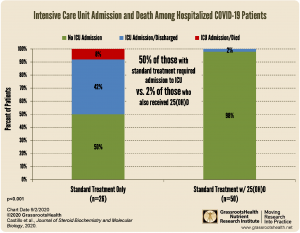 The first Randomized Controlled Trial on vitamin D and COVID-19 has shown a 96% lower risk of ICU admission for those receiving vitamin D (as 25(OH)D to quickly boost vitamin D blood levels) along with the standard treatment, compared to those receiving standard treatment alone.
The first Randomized Controlled Trial on vitamin D and COVID-19 has shown a 96% lower risk of ICU admission for those receiving vitamin D (as 25(OH)D to quickly boost vitamin D blood levels) along with the standard treatment, compared to those receiving standard treatment alone.
These results support many previous observational studies showing a relationship between vitamin D levels and intake and COVID-19 severity.
Review the Latest Nutrient Research for COVID-19
GrassrootsHealth Nutrient Research Institute has launched the new Immune Boost project with the use of our myData-myAnswers nutrient health system that nearly 15,000 people are already using for their health. Specific markers that influence immune health are suggested for testing as part of this project including:
- Vitamin D
- Omega-3 Index
- Essential elements magnesium, selenium, and zinc
- hsCRP
Our goal is to demonstrate how one can use the Nutrient Research Model established by Dr. Robert Heaney to show the effect of vitamin D serum levels of at least 40 ng/ml (100 nmol/L) on risk reduction for all ethnicities in the population. Status and intake of other nutrients will also be analyzed for any type of relationship to immune status and symptom severity. Join the project today!
Please let us know if you’re interested in helping sponsor this project.
Through GrassrootsHealth Nutrient Research Institute, you can also test your essential elements magnesium, copper, zinc and selenium, toxins such as lead, mercury and cadmium, as well as your omega-3 levels, inflammation levels and thyroid stimulating hormone (TSH) level. Find out your levels today! Log on to the test selection page (click the link below) to get your tests and see for yourself if your levels can be improved.
Make sure you track your results before and after, about every 6 months!
Click Here to Access the Test Page
How can I track my nutrient intake and levels over time?
To help you track your supplement use and nutrient levels, GrassrootsHealth has created the Personal Health Nutrient Decision System called
For each specific supplement, you can track what days you take it, how much, and many other details. This will help you know your true supplemental intake and what patterns of use work for you to reach and maintain optimum nutrient levels. Check it out today!


